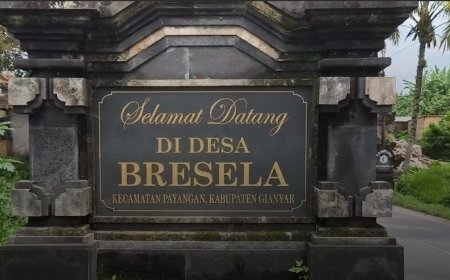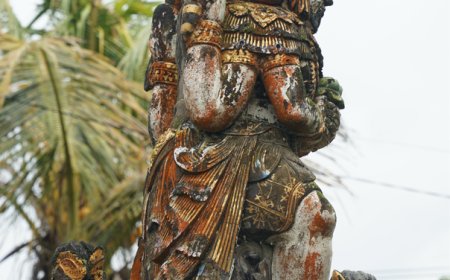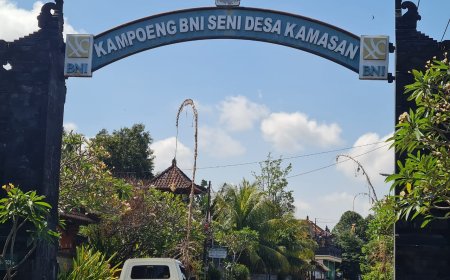Kwanji Traditional Village: A Symbol of Connection with Nature and Ancestors
Kwanji Traditional Village, located in Mengwi District, Badung Regency, Bali, is a hidden gem that preserves a deep cultural and traditional wealth. The village is renowned not only for its natural beauty but also for its unique customs that have been passed down through generations.
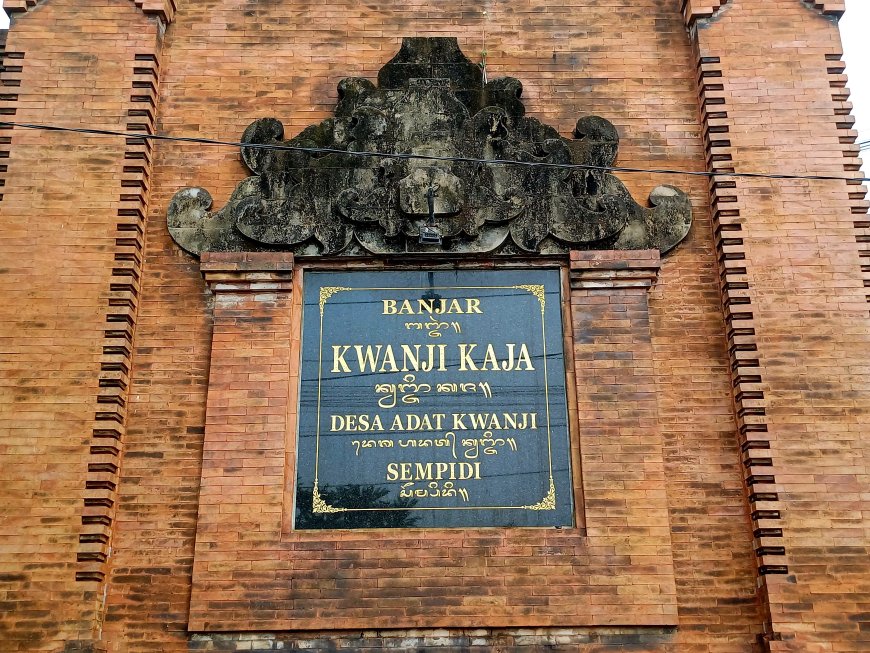
One of the distinctive characteristics that forms a strong identity of Kwanji Traditional Village is the extremely close relationship between the local community and their surrounding nature and ancestors. This connection is not merely reflected in daily life but also in various traditional rituals and ceremonies that have been inherited and continue to be preserved to this day. One of the most prominent and famous rituals in the village is Ngunya Desa. In this ritual, the community collectively carries a kris which symbolizes their village's origin, and then circles the village while bringing various offerings. This procession carries a profound meaning, which is to seek protection from all forms of calamity and request blessings so that the village is continuously blessed by divine power.
Moreover, the Jaka Tree is considered sacred by the Kwanji Village community and plays an irreplaceable role in their spiritual life. This tree is often used as a crucial element in various religious ceremonies and traditional rituals, believed to possess spiritual power capable of providing protection and maintaining natural balance. As a form of respect for local historical and cultural values, the community also created the Baris Jaka Dance inspired by the Jaka Tree. This dance is not merely entertainment but also symbolizes appreciation for noble values and cultural roots that have become an essential part of Kwanji Village's identity.
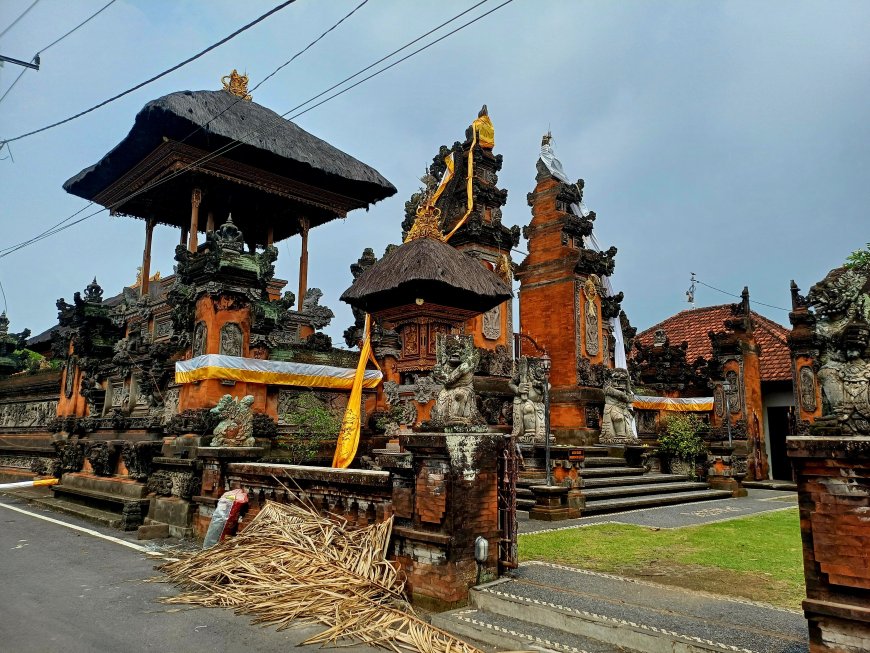
Village and Central Temple (Photo Source: Personal Collection)
The Kwanji Village Temple serves as a spiritual center with a significant role in the lives of the Kwanji traditional community. As the primary place of worship, this temple symbolizes the harmony between humans, nature, and God, aligned with the Tri Hita Karana philosophy. Every architectural element of the temple, from the gate adorned with intricate traditional carvings to the pelinggih shrine used for prayer, carries deep symbolic meaning, reflecting the connection between humans, divine forces, and ancestral spirits. The most prominent ritual held at the temple is the Ngunya Desa Ceremony, where villagers parade a sacred keris around the village while bearing offerings in tribute to their ancestors and to seek protection. This ritual encapsulates the belief that true harmony and blessings are achieved through a delicate balance between spiritual and natural realms. The temple’s pivotal role in preserving this tradition shows that cultural heritage is not merely a relic of history but a living part of everyday life, actively nurtured and safeguarded.
In addition to its spiritual significance, the Kwanji Village Temple also serves as a center for social and cultural gatherings. Every traditional celebration conducted here strengthens social bonds, promotes collective cooperation, and cultivates a profound sense of community. Sacred stones housed within the temple are believed to possess spiritual energies that maintain natural balance and offer protective forces for the village. The enduring customs and values upheld at the Kwanji Village Temple reflect the unwavering commitment of the community to preserve their ancestral heritage while integrating timeless wisdom into modern life. In doing so, they face the complexities of contemporary society with resilience, ensuring that tradition remains vibrant and relevant for future generations.
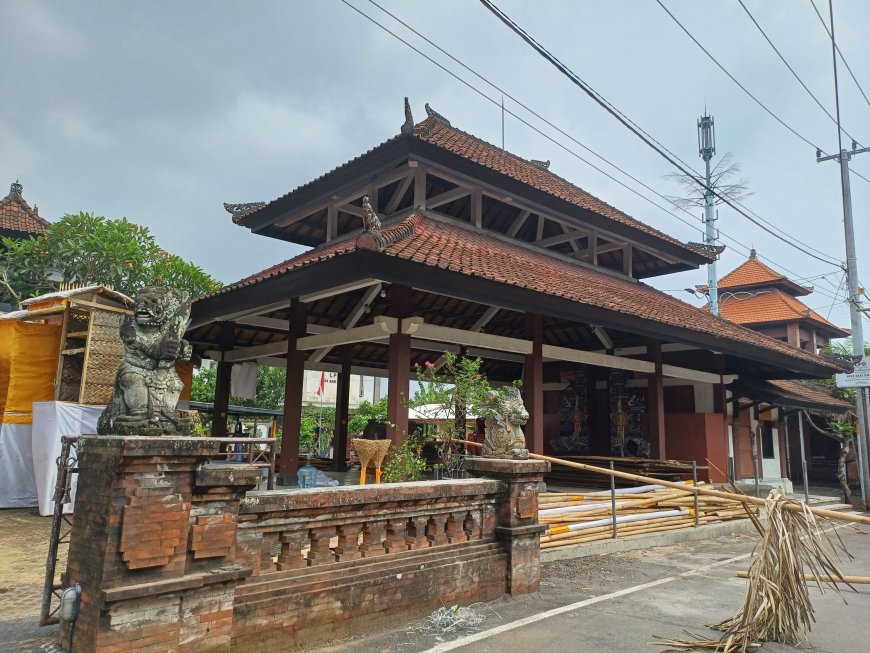
Kwanji Traditional Village Meeting Hall (Photo Source: Personal Collection
The spirit of mutual cooperation in the Kwanji Traditional Village community is a highly complex and structured social construct, where each individual is viewed as an integral part of a larger social organism. In this lifestyle pattern, interpersonal relationships are based on principles of interdependence, support, and strengthening, creating an extraordinary collective synergy in facing increasingly complex and dynamic life challenges. Gotong royong is not merely a physical activity but also a manifestation of noble values reflecting unity, togetherness, and shared responsibility. This is evident in various traditional and village development activities, where the Kwanji community demonstrates an extraordinary ability to collaborate in creating a strong, cohesive, and dignified model of social solidarity. Through this mutual cooperation practice, they have successfully maintained the social and spiritual balance that forms the primary foundation of their community.
However, the increasingly intense and comprehensive modernization has placed systematic pressure on the existence of local traditions and culture. Nevertheless, the Kwanji community has never surrendered to this wave of change. With the resilience and local wisdom they possess, they continue to strive to preserve ancestral heritage through intelligent and sustainable strategies. One significant effort is organizing comprehensive training for the younger generation, ensuring that cultural values and traditional skills continue to be passed down through generations. Additionally, they have developed an authentic culture-based tourism model, offering experiences that not only attract tourists but also strengthen their cultural identity. Consistently, the Kwanji community reinforces traditional institutions, making them an important pillar in maintaining local wisdom amidst the strong currents of globalization. These efforts are concrete evidence of the Kwanji community's commitment to maintaining their unique cultural identity while adapting to extremely complex global changes.
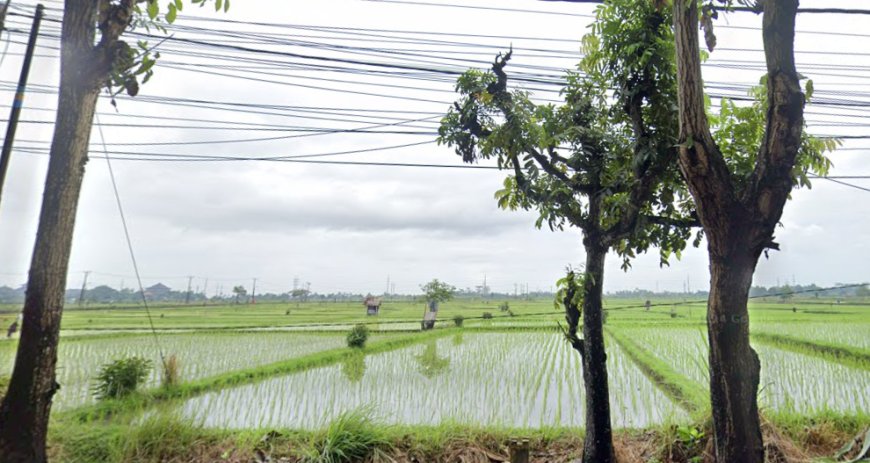
Rice Fields in Kwanji Traditional Village (Photo Source: Personal Collection)
Kwanji Traditional Village is a unique tourist destination that far surpasses conventional tourism concepts, as here, visitors are not passive spectators but are deeply involved in cultural practices, spiritual rituals, and the daily life of the traditional community. This experience is presented in a highly authentic, educational, and transformative manner, providing tourists the opportunity to understand the philosophical meaning and noble values underlying each tradition and community activity. Stunning natural beauty, such as expansive rice fields and clear rivers, blends with profound traditional uniqueness and genuine community hospitality, creating a very rich cross-cultural dialogue space. In Kwanji Village, tourism is not just about seeing, but also experiencing; visitors are invited to participate in activities such as attending traditional ceremonies or playing traditional musical instruments, making it an unforgettable travel experience rich with deep meaning.


















































